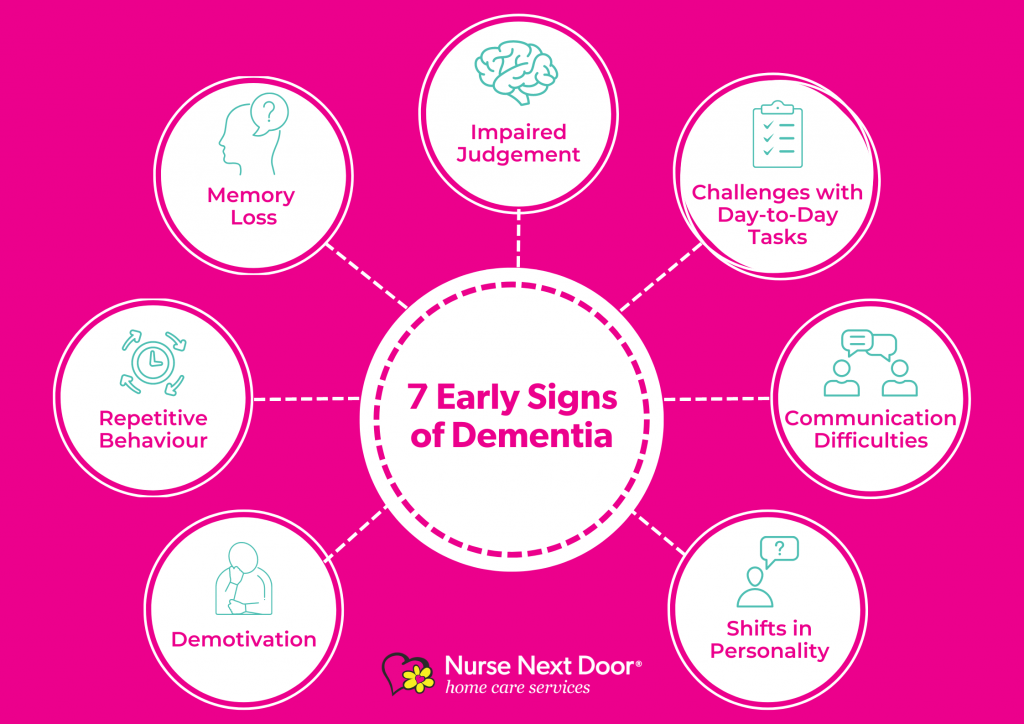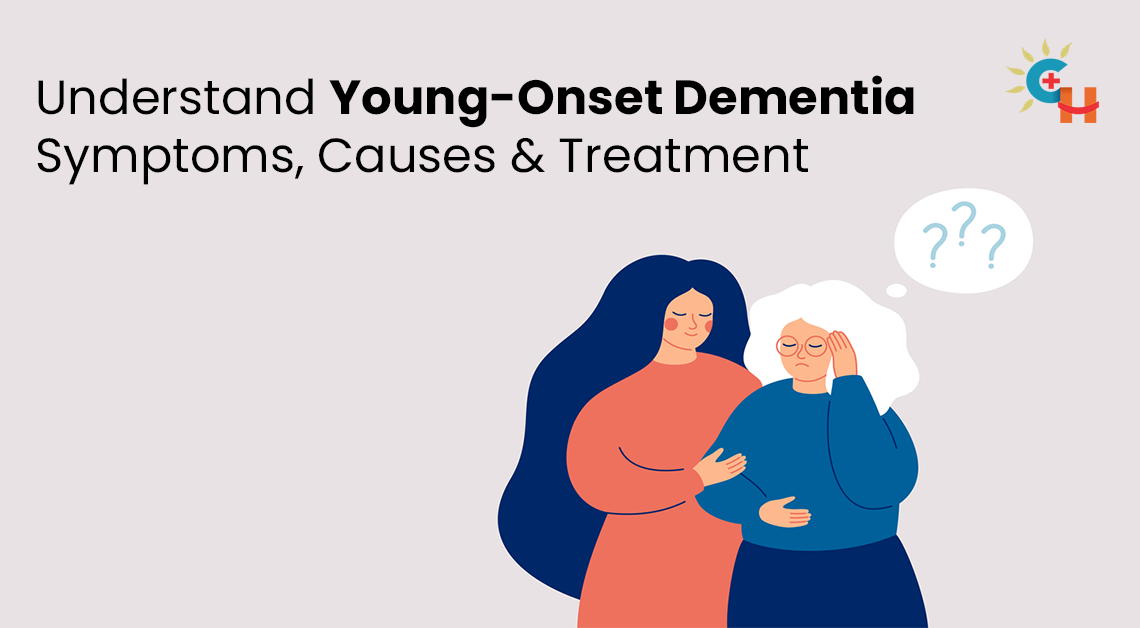Living Well After an Early Onset Dementia Diagnosis
Living Well After an Early Onset Dementia Diagnosis
Blog Article
Recognizing the Impact of Mental Deterioration on Day-to-day Live and Caregiving
Dementia impacts everyday life in extensive methods, influencing not just those detected but additionally their caregivers. As cognitive decrease progresses, you may notice modifications in communication and routine that obstacle both parties. Recognizing these shifts is necessary for keeping dignity and interaction. Exactly how do you adjust your caregiving methods to sustain a person traversing this complex trip? The solutions might amaze you as we discover the subtleties of this experience.
The Stages of Mental Deterioration and Their Results on Life
As you navigate the trip of dementia, recognizing its phases can markedly affect how you manage everyday life. Mental deterioration normally progresses with three major phases: early, center, and late. In the very early phase, you might discover occasional memory lapses or problem finding the appropriate words. This can result in stress, yet recognizing these indications early aids you adapt your routine and seek assistance.
Throughout the center stage, you'll experience much more noticeable cognitive decline. Daily jobs may end up being challenging, and preserving your freedom may require adjustments. Making use of tips and streamlining your atmosphere can aid.
In the late phase, individuals frequently require considerable aid with daily activities. Preparation for care ends up being important, concentrating on convenience and lifestyle. By understanding these stages, you're far better geared up to respond proactively, guaranteeing you or your enjoyed one can navigate the challenges with dignity and poise.

Adjustments in Interaction and Social Communication
Exactly how do adjustments in communication affect your everyday communications as mental deterioration advances? As dementia advances, you may notice that simple conversations become challenging. Words might escape you, or you might battle to locate the ideal phrases. This can cause frustration for both you and your loved ones. Nonverbal hints, like motions or faces, become progressively crucial.
You may discover it simpler to attach with these ways rather of depending only on spoken language. Paying attention skills can additionally alter; you might locate it more difficult to keep in mind or comply with discussions what was just claimed (Frontotemporal Dementia). This can bring about misunderstandings or sensations of isolation
Urging patience and producing an encouraging environment can assist. Participating in tasks that foster connection, like songs or art, can boost social communications. Remember, preserving partnerships is still possible; it's just about adapting to brand-new means of connecting.
Influence On Daily Routines and Activities
While navigating everyday regimens, you'll likely see that jobs you once completed effortlessly become much more difficult as mental deterioration progresses. Easy activities like cooking, dressing, or perhaps bathing may need more time and initiative. You might find yourself forgetting action in familiar routines or struggling to remember where you placed products. This can lead to frustration not simply for you, but also for those around you.
Preparation your day can feel overwhelming, making it more difficult to stick to a routine. You might need reminders for appointments or to take drugs. Adjusting your environment can aid; for example, classifying things or utilizing lists can simplify jobs. Taking part in repeated, structured activities can also provide convenience and a sense of achievement. Remember, it's okay to request for help. Bordering on your own with supportive buddies or family can make managing these adjustments a bit easier.
Emotional and Behavioral Difficulties
Guiding with day-to-day routines can bring about not simply useful challenges, however behavioral and additionally emotional ones. You might see adjustments in mood, such as enhanced anxiety or stress, which can stem from complication or trouble in completing tasks. As you browse these minutes, it is important to identify that your loved one may reveal their sensations through behaviors like anxiety or withdrawal.
These psychological responses can be unforeseeable and might arise without warning, leaving you both feeling bewildered. You might discover that acquainted atmospheres or routines can aid reduce stress and anxiety, however keeping perseverance becomes considerable. It is necessary to confirm their feelings, also if you do not fully comprehend them.
The Function of Caregivers in Sustaining People With Mental Deterioration
As a caretaker, you play an essential function in offering psychological assistance for people with mental deterioration. Developing everyday treatment regimens can create a sense of stability and convenience, aiding to reduce their stress and anxiety. By recognizing their requirements and utilizing reliable techniques, you can considerably improve their high quality of life.
Emotional Support Approaches
When caring for a person with dementia, comprehending the psychological landscape is important for offering effective assistance. Simple motions, like holding their hand or keeping eye get in touch with, can develop a sense of protection. Eventually, do not fail to remember to take treatment of your very own emotional demands; seeking assistance for on your own can improve your capacity to care for them.
Daily Care Routines
Developing daily care routines is necessary for offering security and convenience to individuals with dementia, as these regimens can help in reducing complication and anxiety. You can start by laying out a regular routine for meals, activities, and remainder. This predictability aids your enjoyed one really feel more protected and involved.
Include acquainted tasks, like folding laundry or watering plants, which can evoke positive memories and promote a sense of achievement. Use aesthetic cues, such as calendars or checklists, to guide them through the day.
Be adaptable, though; adapt regimens as required based upon their state of mind or power levels. Early Onset Dementia. Remember, your perseverance and understanding are important in steering their changing needs, ensuring they feel supported and valued throughout their life
Producing a Safe and Comfy Living Atmosphere
Producing a risk-free and comfortable living environment is vital for people with mental deterioration. You'll wish to make home security alterations that lower threats and guarantee experience to give a feeling of comfort. By focusing on these elements, you can aid develop a room that sustains both safety and health.
Home Safety And Security Alterations
As you browse the challenges of dementia, making home security adjustments can greatly improve convenience and safety and security. Beginning by eliminating tripping risks like rugs and clutter, ensuring pathways are clear. Set up grab bars in shower rooms and non-slip floor coverings in the shower to stop drops. Consider making use of brighter illumination and night lights to improve exposure, especially during nighttime. Label crucial locations, such as the bathroom and kitchen, with clear indications to aid with positioning. Secure any kind of sharp items or harmful compounds unreachable. Additionally, analyze your home's alarms and locks to confirm they're user-friendly and offer satisfaction. These alterations not only promote security Early Onset Dementia however additionally motivate freedom, allowing your enjoyed one to really feel more secure in their atmosphere.
Convenience and Experience
After making sure a risk-free setting with required alterations, fostering comfort and knowledge is essential for individuals with mental deterioration. Begin by customizing their room. Use acquainted colors, decorations, and photos that evoke delighted memories. A preferred blanket or chair can supply a feeling of safety and security. Keep a regular routine to aid them really feel grounded and minimize anxiousness. Easy, acquainted meals can also create a reassuring environment. Keep pathways clear and clutter-free to avoid confusion. Incorporate soft lighting, as bright lights can be disorienting. Consider adding relaxing aromas, like lavender, to advertise leisure. Engaging in familiar activities, such as paying attention to music or gardening, can improve their feeling of belonging, making their living setting a real refuge.
Methods for Efficient Caregiving and Support
While navigating the challenges of mental deterioration treatment can really feel overwhelming, implementing reliable methods can considerably improve both the caretaker's and the individual's daily experience. Start by developing a routine; predictability helps decrease anxiousness for both you and your loved one. Usage clear, simple interaction-- short sentences and straight questions can prevent complication.

Do not fail to remember to care for on your own; routine breaks and get in touch with support groups. Sharing experiences with others in comparable situations can provide valuable understandings and psychological relief.
Finally, stay individual and adaptable. Mental deterioration can bring unpredictable adjustments, so adjusting your strategy is crucial. By utilizing these methods, you can promote a much more favorable atmosphere that benefits both you and your enjoyed one.
Frequently Asked Inquiries

What Are the Various Kinds Of Mental Deterioration?
You'll find a number of kinds of dementia, consisting of Alzheimer's, vascular dementia, Lewy body dementia, and frontotemporal mental deterioration. Each kind impacts memory and cognitive function in a different way, so comprehending the differences is important for appropriate medical diagnosis and treatment.
Exactly How Can I Assist Someone With Early-Stage Dementia?
You can assist somebody with early-stage dementia by being client, offering assistance, and motivating them to take part in activities they enjoy. Maintaining routines consistent and keeping open interaction can likewise make a considerable distinction in their every day life.
Are There Financial Resources Available for Mental Deterioration Care?
Yes, there are economic sources available for mental deterioration treatment. You can check out entitlement program programs, not-for-profit companies, and insurance policy choices. It's additionally smart to consult neighborhood companies for specific resources tailored to your circumstance.
What Legal Considerations Should Caregivers Know?
As a caretaker, you should take into consideration power of attorney, medical care proxies, and guardianship laws. It's vital to understand the legal rights and responsibilities you hold, guaranteeing your loved one obtains suitable treatment and security.
Exactly How Can I Handle Caregiver Stress?
You can handle caretaker anxiety by prioritizing self-care, looking for support from friends or groups, setting practical expectations, taking breaks, and exercising relaxation strategies. Bear in mind, your well-being matters equally as much as the person you're looking after.
Understanding the Influence of Mental Deterioration on Daily Life and Caregiving.
As you navigate the journey of mental deterioration, comprehending its stages can substantially influence how you manage everyday life.While steering everyday regimens, you'll likely observe that tasks you as soon as completed effortlessly come to be more difficult as dementia advances.Developing day-to-day treatment regimens is crucial for providing stability and comfort to individuals with dementia, as these regimens can assist minimize complication and stress and anxiety.While steering the obstacles of mental deterioration treatment can really feel frustrating, carrying out reliable approaches can greatly improve both the caretaker's and the person's daily experience.
Report this page